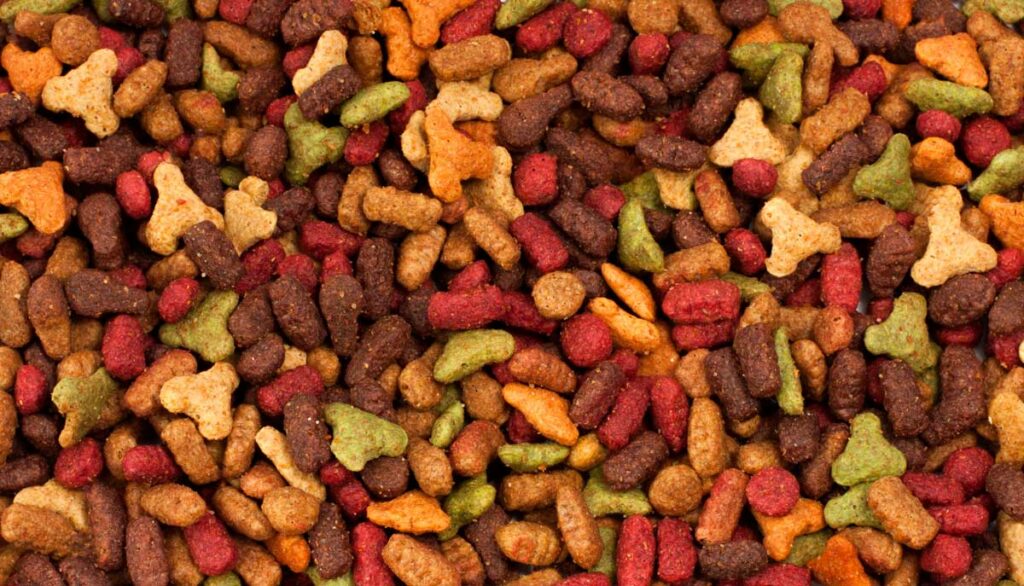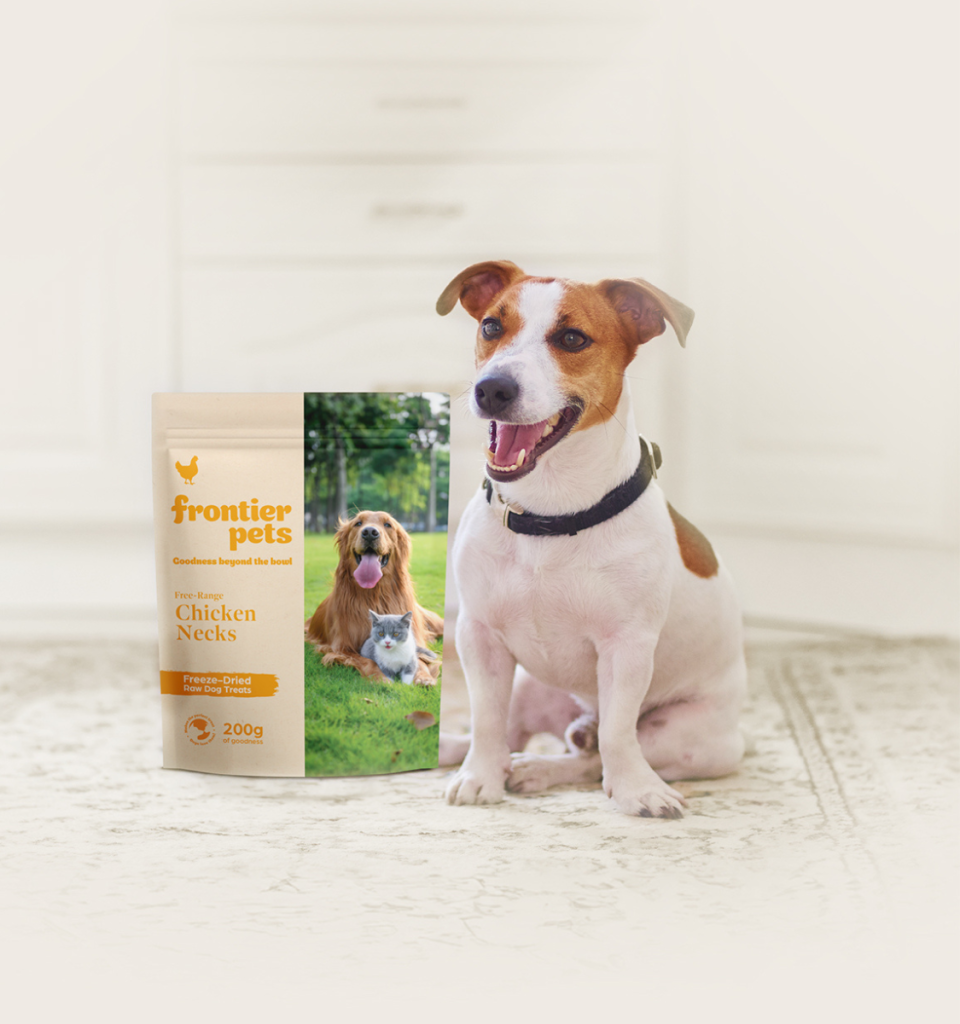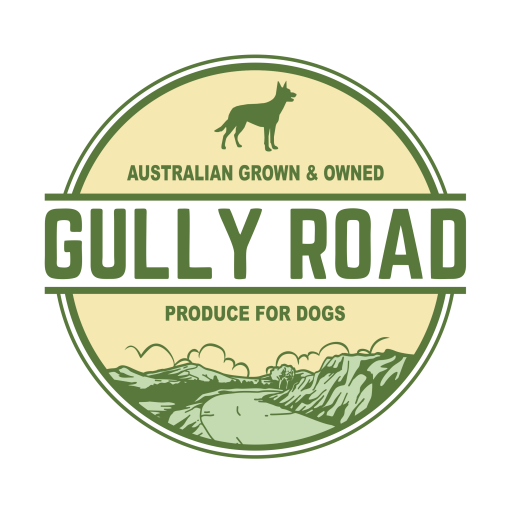With more and more people bringing furry friends into their homes, there’s been a noticeable uptick in how much we care about what our pups eat. Dog owners everywhere are wagging their fingers at labels, asking, “What’s really in this?” One big bone of contention? The age-old debate between natural dog foods and synthetic dog foods. Let’s dig into this doggie dilemma and uncover what’s best for our four-legged family members.
Understanding Natural vs. Synthetic Additives
When discussing natural ingredients in ‘dog food‘, think of wholesome stuff like chicken, beef, veggies, and grains. They’re just like the foods we’d pick up at the local market. On the other hand, synthetic additives are like those added extras, often cooked up in labs, to boost a food’s nutritional profile.
While synthetic dog ingredients are there to help fill in any missing vitamins and minerals, it makes you wonder, Are they as good as natural? Some bags boast “complete” nutrition because of these additives. But honestly, wouldn’t you prefer your pup’s meal to come packed with natural goodness without relying on lab-made fill-ins?

The Nutritional Needs of Dogs
Like us, our dogs need a mix of proteins, carbs, fats, vitamins, and minerals to feel their best. Naturally sourced foods like meats and veggies can offer many dog vitamins and minerals. But you may wonder, Can every piece of natural food give my dog everything it needs? The answer is not always. Some people mistakenly believe that a natural diet covers all bases and rounds out their dog’s diet. But in truth, while nature offers a bounty of nutrients, it might occasionally miss a spot. It’s essential to know what’s on your pup’s plate and whether it’s ticking all the right nutritional boxes or leaving gaps that can have consequences down the road.
Pros and Cons of Natural Diets
Incorporating natural foods into your dog’s diet can offer a world of good. Celebrated for their freshness and minimal processing, these foods retain the rich nutrients that make them so beneficial in the first place. When you scan the pet food label, the recognisable and wholesome ingredients resonate with a holistic approach to pet nutrition.
While natural diets are undeniably beneficial, it’s essential to ensure they’re well-rounded. While a beef-centric diet showers your dog with protein, it might miss out on specific essential fatty acids, which are vital for a shiny coat and healthy skin. Likewise, while carrots are vitamin-packed wonders, they aren’t a one-stop source for all nutrients. But as long as you remember that the key is balance, you can create a healthy, nutrient-packed natural diet for your dog.
The Role of Synthetic Additives
While synthetic ingredients in dog food aim to fill potential nutritional gaps found in natural foods, they might not always be the best choice for your pet. The idea is to ensure every meal has a consistent nutrient profile, even if natural ingredients vary. So, many commercial dog foods come loaded with a mix of synthetic vitamins and minerals, claiming to meet general dog nutritional standards. However, it’s worth noting that these artificial additives might not be suitable for all dogs. Although they might offer advantages to specific breeds with particular health requirements, the long-term effects of feeding your pet these synthetics are still under investigation.
Natural nutrition often provides a more holistic approach, ensuring your pet receives the nutrients it needs without the potential risks of synthetic additives. It’s always best to tread with caution and prioritise your dog’s natural well-being.

Addressing Concerns about Synthetic Additives
Many dog owners have concerns about the presence of synthetic additives in dog food. While it’s common to believe that these additives mimic natural nutrients in a lab-created format, it’s critical to look at their role in pet nutrition critically.
Though some studies claim that regulated synthetic additives are safe, not all pet parents are convinced. Although organisations such as the Pet Food Industry Association of Australia (PFIAA) can speak to the rigorous testing of these additives, the term “synthetic” can still cause concern for many. It’s important to remember that just because something is labelled “safe,” it doesn’t mean it’s the best or most natural option. As the debate rages on, many dog owners are opting for fewer synthetics and more natural ingredients in their dog food, putting their pets’ long-term well-being first.
Balancing Natural and Synthetic Elements
A clear trend emerges in the search for ideal dog food: natural ingredients should lead the way. While you can make a case for combining natural and synthetic elements to fill potential nutrient gaps, an increasing number of pet parents prefer a fresh, natural diet.
Natural ingredients provide dogs with freshness, variety, and easily identified nutrients. When looking for the best food for your pet, it’s critical to prioritise high-quality natural ingredients, which should form the foundation of your dog’s diet. Synthetic additives, on the other hand, which companies frequently add to provide consistency, have come under fire. They may fill nutrient gaps, but are they the best long-term health option?s

Always read pet food labels with caution, striving to reduce synthetics while increasing natural components. A consultation with a veterinarian or pet nutritionist for the most tailored advice may clear the way for a diet that truly champions your dog’s well-being.
Consulting a Veterinarian
A veterinarian’s advice is still invaluable in the field of dog diets. While general information is helpful, individual dogs have different nutritional needs based on age, health status, and activity level. Recognising this uniqueness is critical. Veterinarians know to create a feeding schedule with a blend of natural dog foods and synthetic dog foods tailored to your dog’s specific needs.
As a result, before making any dietary decisions or changes, especially when incorporating synthetic dog vitamins and minerals, ask for the guidance of a professional. Ideally, as a pet owner, you want to prioritise these consultations to ensure your dog’s diet is balanced and tailored to its unique needs to keep it healthy and thriving.
Natural vs. Lab-Made — Decoding Additives
Understanding the debate between natural and synthetic additives in dog food can be eye-opening. At the heart of the discussion is a common goal: the best possible health for our beloved pets. While natural dog foods and ingredients have undeniable benefits, synthetic dog foods and additives can be essential in rounding out nutritional profiles when used wisely.
Ideally, as a dog owner, we encourage you to make decisions based on up-to-date information and your pet’s needs rather than buzzwords. Balance and education are essential in this culinary dance between nature and science. But if you get it right, your dog will eat healthier while getting everything it needs to live a long, happy life.



Leave a Reply